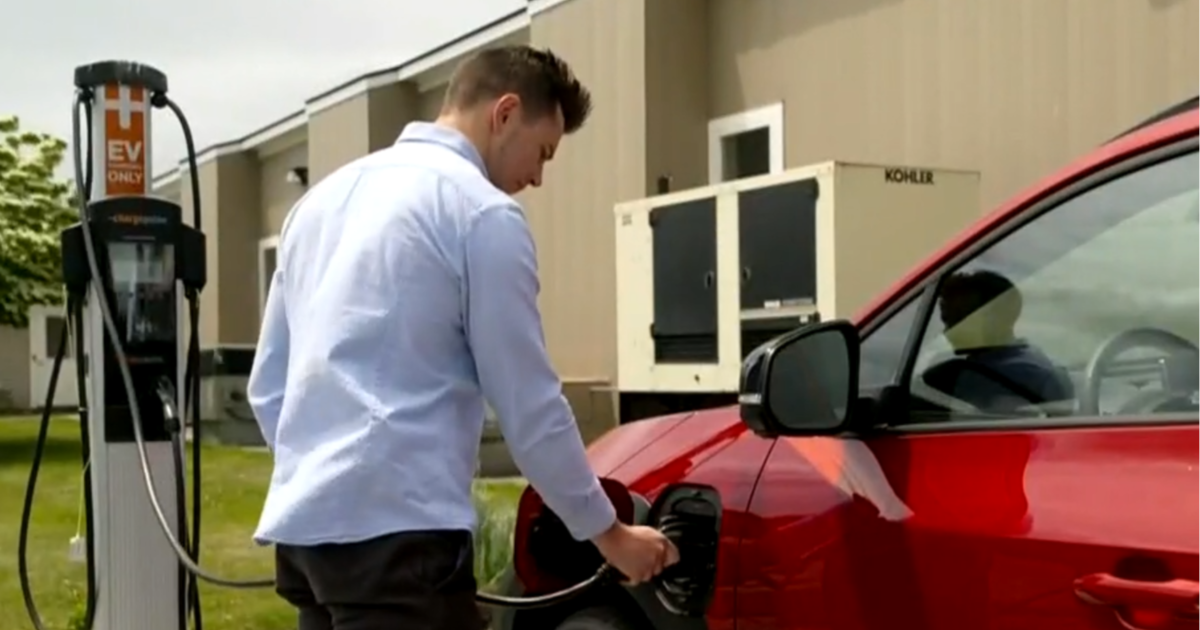Detroit — Since Chris Ashley from Frederick, Maryland, first started driving his new electric Ford F-150, his concerns about running out of power have vanished.
“It’s naive to assume that you won’t experience range anxiety initially,” Ashley, who is charging up for a summer road trip, told CBS News. “However, the more you drive the vehicle, the more you learn how to plan your trips, when and where to charge.”
A survey conducted earlier this year by the Canadian Automobile Association revealed that two-thirds of drivers were worried about range limitations before purchasing their electric vehicles. However, after owning an electric vehicle, only 30% still had this concern.
One of the reasons for this change is the development of better battery technology and the availability of more electric vehicle options. For instance, the Lucid sedan claims to have a range of over 500 miles per charge. However, its high price of nearly $140,000 exceeds most budgets.
A study published in the journal Energies in February found that 25% of individuals could meet all their driving needs with an electric vehicle that has a range of just 143 miles, especially with the help of a home charger.
“On average, electric vehicles now offer a range of around 250 to 300 miles,” said Alex Knizek, manager of auto testing and insights for Consumer Reports. “This is more than sufficient for the majority of people’s driving habits.”
“Interestingly, we’re starting to see more concern about charging availability rather than range anxiety,” Knizek added. “Charging stations are still not as abundant as gas stations.”
According to the U.S. Department of Energy, there are nearly 54,000 publicly available fast charging stations across the country, with the majority located along the coasts and some states having fewer than 100 stations.
These charging stations are crucial for longer trips, as they can provide an 80% charge in as little as 20 minutes. In comparison, the average time for a fuel stop is around two minutes.
Last month, Consumer Reports reported that Ford had reached an agreement with Tesla to allow Ford EV owners to use about 12,000 Tesla public fast chargers in the U.S. and Canada.
Donna Dickson, lead engineer for the Ford Mustang Mach-E, acknowledges the need for improved charging times.
“The key is to make charging as convenient as a stop at a gas station,” Dickson said. “We need to work together to expand the charging infrastructure and make more people feel comfortable with electric vehicles.”
Denial of responsibility! VigourTimes is an automatic aggregator of Global media. In each content, the hyperlink to the primary source is specified. All trademarks belong to their rightful owners, and all materials to their authors. For any complaint, please reach us at – [email protected]. We will take necessary action within 24 hours.



